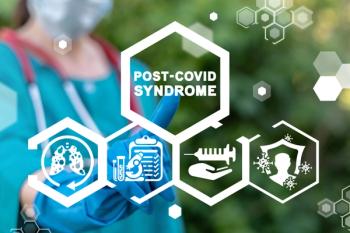
Can COVID-19 Enter the Brain?
A new study considers how the virus might enter the brain and cause cognitive issues.
According to research published in Nature Neuroscience, SARS-CoV-2, the cause of COVID-19, might be able to enter the brain. Researchers discovered that the spike protein, or the red arms of the virus, can cross the blood-brain barrier in mice.1
“We know that when you have the COVID infection you have trouble breathing and that’s because there’s infection in your lung, but an additional explanation is that the virus enters the respiratory centers of the brain and causes problems there as well,” said lead author William A. Banks, a professor of medicine at the University of Washington School of Medicine and a Puget Sound Veterans Affairs Healthcare System physician and researcher.2
SARS-CoV-2 binds to cells via the S1 subunit of its spike protein. Binding proteins like S1 alone can cause damage as they detach from the virus and cause inflammation.
According to Banks, “The S1 protein likely causes the brain to release cytokines and inflammatory products.”2
The COVID-19 infection causes a cytokine storm, with the immune system overreacting in its attempt to kill the invading virus. The infected individual is then left with cognitive issues, like brain fog and fatigue.
The study also found that the transport of S1 was faster in the olfactory bulb and kidney of male mice rather than females. This observation might relate to men’s increased susceptibility to more severe COVID-19 infections.
Banks had this to say for people not taking COVID-19 seriously: “You do not want to mess with this virus. Many of the effects that the COVID virus has could be accentuated or perpetuated or even caused by virus getting in the brain and those effects could last for a very long time.”2
This study was partially supported by a National Institute on Aging-funded COVID-19 supplement to a shared RF1 grant of Banks and Raber.
References
1. Rhea EM, Logsdon AF, Hansen KM, et al. The S1 protein of SARS-CoV-2 crosses the blood–brain barrier in mice. Nat Neurosci. December 16, 2020.
2. University of Washington School of Medicine. Research strongly suggests COVID-19 virus enters the brain. News release. December 17, 2020.
Newsletter
Receive trusted psychiatric news, expert analysis, and clinical insights — subscribe today to support your practice and your patients.







